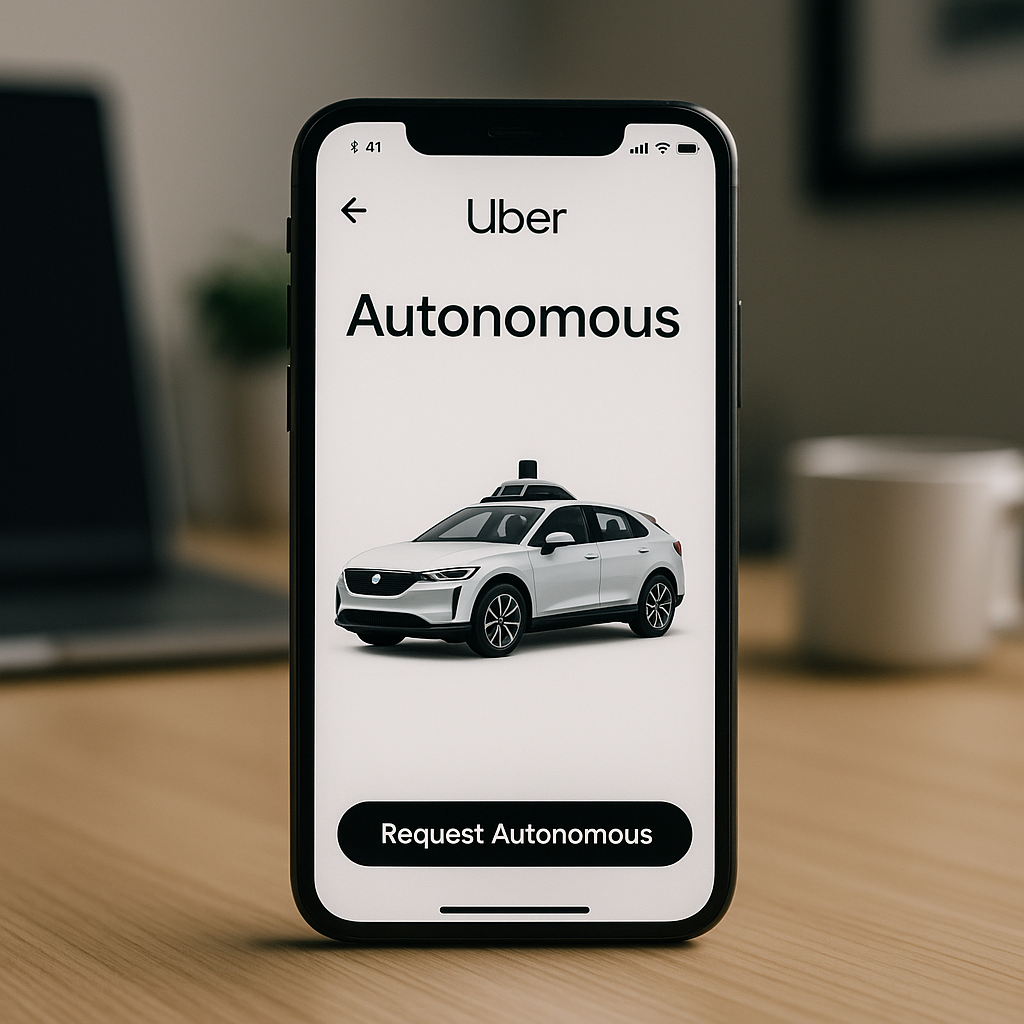**Title: Revolutionizing Transportation: The Partnership of Uber and Baidu in Autonomous Vehicles**
In recent months, the technological landscape has been buzzing with excitement over the partnership between Uber and the Chinese tech giant Baidu. This collaboration marks a significant step in the global deployment of autonomous vehicles, with plans to introduce thousands of Baidu’s Apollo Go vehicles across various regions, accessible through the Uber platform. This partnership is not just about cutting-edge technology; it’s a transformative move that stands to redefine transportation options for millions.
For business decision-makers and entrepreneurs, understanding innovations like these is crucial. As we transition into a more automated world, the implications for your operations and markets are immense. With Uber and Baidu leading this charge, it raises the question: how can your business leverage similar technologies to enhance efficiency and customer experience?
Understanding the Baidu-Uber Collaboration
Uber and Baidu are focusing on making mobility affordable and widely accessible by deploying A.I.-powered autonomous vehicles. They have ambitious plans to roll out the Apollo Go fleet in regions such as Asia, the Middle East, and other global markets outside of the U.S. The aim is to revolutionize how people think about ride-sharing while also addressing the growing demand for more sustainable transport solutions.
Unlike traditional ridesharing models, where vehicles rely on human drivers, autonomous vehicles can streamline transportation by reducing overhead costs and increasing operational efficiency. For example, once this partnership is fully operational, riders in Asian markets could easily choose to book an Apollo Go vehicle via the Uber app—a seamless integration of technology and user experience.
The Benefits of Autonomous Technology
The marriage of Baidu’s autonomous capabilities and Uber’s extensive network has the potential to bring about significant benefits, not just for end-users, but also for businesses of various types. Here are a few key benefits:
- Cost Savings: By minimizing labor costs associated with human drivers, businesses can offer more competitive pricing, leading to broader customer acquisition.
- Time Efficiency: Reduced wait times and streamlined logistics can enhance operational efficiencies, which can be particularly beneficial for industries such as food delivery, mobility service providers, and more.
- Scalability: Autonomous vehicle technology can be easily scaled to accommodate growth, enabling businesses to quickly adapt to increasing demand without significant infrastructure changes.
Real-World Applications: A Case Study
Let’s consider the implications of this technology in real-world scenarios. Imagine a busy café on a bustling street in Copenhagen. With the integration of autonomous delivery vehicles, café owners could maintain a robust delivery service without the need to hire numerous delivery drivers. This not only saves on operational costs but also sets up a more efficient logistics chain—allowing the business to reinvest saved resources into product quality and customer service.
Similarly, e-commerce platforms in Denmark can leverage this technology to facilitate fast and reliable delivery to customers across Europe. A fully autonomous delivery system can enhance customer satisfaction by ensuring faster delivery times, thus boosting sales and revenue.
The Role of Automation in Business Operations
While the partnership between Uber and Baidu gains global traction, businesses should consider how they can harness automation in their own operations. By investing in custom-built solutions tailored to their specific needs, companies can streamline their processes, enhance customer interactions, and drive growth.
For instance, a warehouse utilizing automated systems for inventory management can drastically reduce time spent on stock management—a game-changer for any logistics company. Similarly, healthcare clinics can implement chatbots to schedule appointments more efficiently, freeing up valuable time for medical professionals to focus on patient care.
Exploring Open-Source Solutions
In addition to proprietary platforms and partnerships, many businesses can benefit from leveraging open-source solutions that provide similar automated functionalities. In Denmark and throughout Europe, popular open-source platforms have emerged that can be integrated into existing business models. This fosters innovation and flexibility while keeping costs manageable.
Open-source platforms can offer robust frameworks for data analysis, customer relationship management, and more, allowing businesses to harness the power of community-driven enhancements and support.
Final Thoughts: Embracing the Shift to Automation
The collaboration between Uber and Baidu exemplifies a core shift towards automation in transportation. As businesses, it’s vital to identify opportunities for integrating similar technologies into our operations. Whether it’s through adopting autonomous delivery vehicles or implementing automated systems within our operations, the future holds remarkable potential for those willing to embrace these changes.
If you’re looking to explore how automation can revolutionize your business processes, I invite you to connect with us at Best Choice. Our dedicated team is ready to help you navigate this exciting landscape by developing custom solutions tailored to your unique needs. Let’s harness the power of technology together!





